Revolutionize Your Dishwasher’s Cleanliness: The Self-Cleaning Filter Solution in 2023
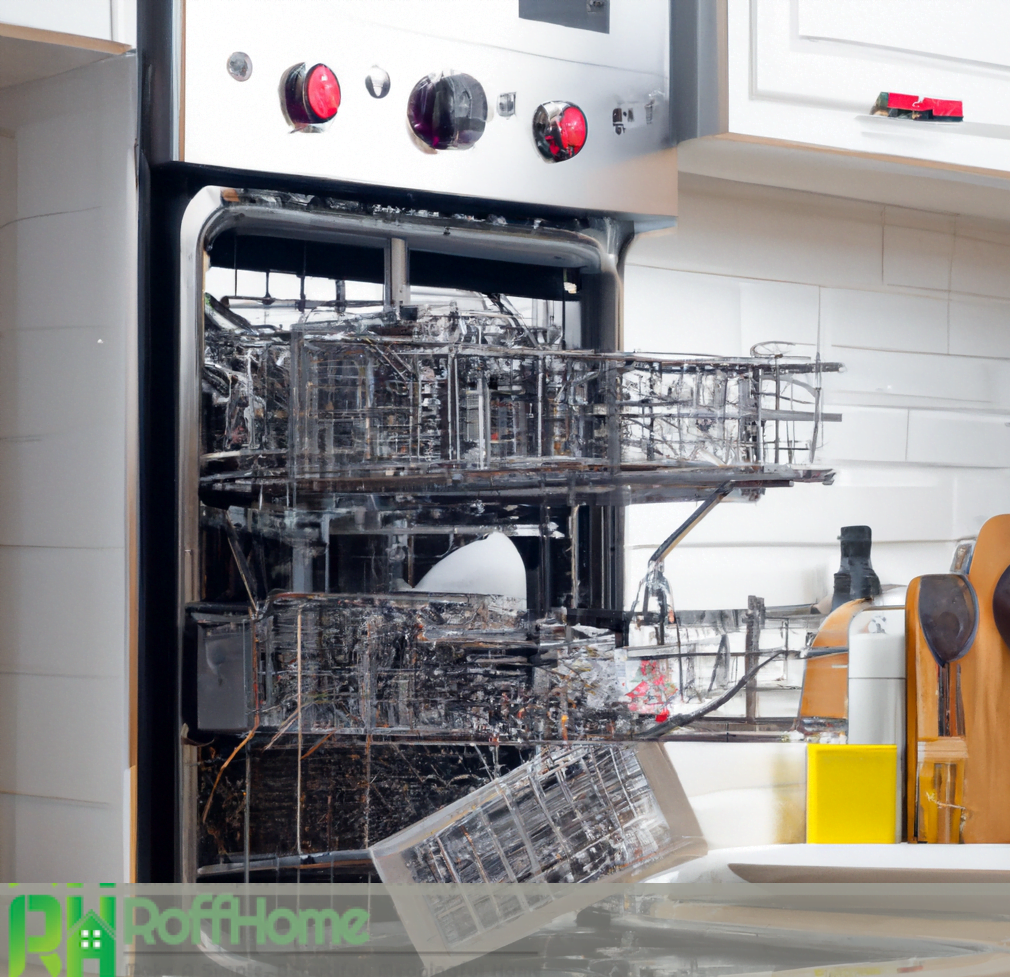
Dishwashers have revolutionized how we clean our dishes and make our lives much more convenient. However, like any appliance, they require maintenance and cleaning to ensure they operate effectively and efficiently. One of the essential parts of a dishwasher is its filter, which plays a crucial role in removing food scraps, debris, and residue from the water during the wash cycle. A dishwasher self cleaning filter is an automatic feature that helps ensure that your dishwasher works optimally and is clean without manual cleaning.
This filter technology has gained popularity due to its convenience and ability to reduce the time and effort required for manual cleaning. It uses advanced filtration systems to trap and remove particles, debris, and food scraps, preventing them from clogging the dishwasher’s drainage system. Moreover, dishwasher self cleaning filters come with a range of features that improve the efficiency of the wash cycle, including odor control, filtration capacity, and detergent effectiveness.
In areas with hard water, dishwasher self cleaning filters are critical, as they prevent mineral buildup that can reduce the lifespan of your dishwasher. However, like any appliance, proper maintenance and troubleshooting are necessary to ensure your dishwasher functions optimally. This is why choosing a brand with a good reputation and comparing different models based on features, energy and water efficiency, and consumer reviews is essential.
The history and evolution of dishwasher self-cleaning filters
The dishwasher has been a staple appliance in modern kitchens for decades, and one of the most critical components of any dishwasher is the filter. Dishwasher filters trap food scraps, debris, and other particles that would otherwise clog the drain and make it difficult to clean dishes properly. However, the history of dishwasher filters has been a long and winding road, with many different types of filters used over the years.
Early dishwashers in the 1950s and 1960s typically used manual filters, which required frequent cleaning and maintenance. These filters were made from mesh or wire and were prone to clogging, which could cause the dishwasher to malfunction or even break down completely. In the 1970s, dishwashers began incorporating an automatic filtration system that used a spinning propeller to flush out debris and prevent clogs. However, these filters were not self-cleaning and still required regular maintenance to keep them functioning correctly.
It wasn’t until the 1980s that dishwasher manufacturers introduced self cleaning filters, which used a combination of grinders and mesh screens to remove debris and prevent clogs. These filters significantly improved over earlier models but still required manual cleaning occasionally.
Today, most modern dishwashers come equipped with self cleaning filters that use a combination of grinders, mesh screens, and other technologies to remove debris and prevent clogs. Some models even include debris traps and filter baskets to improve filtration efficiency and prolong the filter’s life.
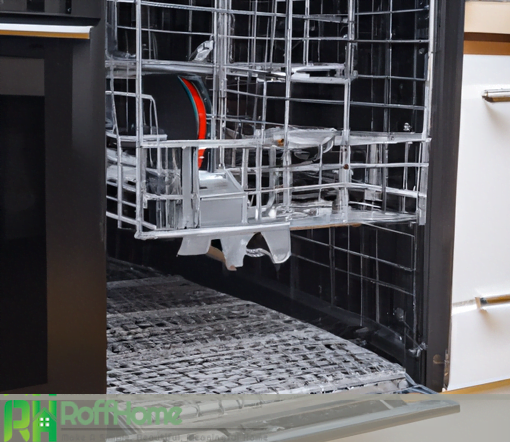
Future Trends in Dishwasher Self-Cleaning Filter Technology
As technology advances, so does the world of dishwasher self cleaning filters. Several exciting trends and innovations are expected to shape the future of this technology and make dishwashers even more efficient and convenient.
One of the most significant trends in dishwasher self cleaning filter technology is artificial intelligence (AI) and machine learning algorithms. These algorithms are designed to learn and adapt to a user’s cleaning habits, adjusting the filtration system to optimize cleaning performance and reduce energy and water consumption. Some models already use sensors to detect the level of debris in the water and adjust the filtration system accordingly. Still, AI-powered models could take this technology to the next level.
Another trend is the development of more advanced filtration materials. Many modern dishwashers use stainless steel mesh screens and grinders to trap debris. Still, researchers are exploring using new materials like graphene and carbon nanotubes to improve filtration efficiency and reduce maintenance requirements.
Water efficiency is also a significant concern in dishwasher self cleaning filters. While many modern models are already designed to use less water than their predecessors, future models are expected to use even fewer thanks to innovations like recirculation pumps and improved spray arm technology.
Finally, as innovative home technology becomes more widespread, dishwashers will become more integrated with other appliances and connected devices. This could include features like remote control and monitoring, voice-activated controls, and integration with other intelligent home systems.
How to Clean a Dishwasher Self-Cleaning Filter
While dishwasher self cleaning filters are designed to require less maintenance than traditional filters, it’s still essential to clean them periodically to ensure optimal performance. Here’s how to clean a dishwasher self cleaning filter:
- Begin by turning off the dishwasher and unplugging it from the wall to prevent accidents.
- Locate the filter in your dishwasher. It is typically located at the bottom of the dishwasher, underneath the spray arm.
- Remove the filter carefully by twisting or pulling it out of its housing. Some filters have a locking mechanism that must be released before removing them.
- Once you have the filter in hand, use a soft brush or toothbrush to remove any accumulated debris or residue on the filter gently. Be sure to clean both sides of the filter thoroughly.
- If the filter is filthy, you can soak it in warm water and vinegar for about 30 minutes to help break down any stubborn residue.
- Rinse the filter thoroughly with warm water to remove debris and vinegar.
- Once the filter is clean, carefully replace it in its housing, ensuring it is securely locked in place.
- Finally, run a cleaning cycle with a dishwasher cleaner to help remove any remaining debris and keep the dishwasher smelling fresh.
Common Problems with Dishwasher Self-Cleaning Filters and How to Fix Them
Dishwasher self cleaning filters are designed to be low-maintenance, but like any appliance, they can experience problems from time to time. Here are some common problems with dishwasher self cleaning filters and how to fix them:
Filter clogs: One of the most common issues with dishwasher self cleaning filters is clogging. When this happens, the dishwasher may be unable to clean dishes properly. To fix this, remove and clean the filter thoroughly, as described in the previous section.
Residue buildup: Over time, residue from detergents, food particles, and hard water can build up on the filter, reducing its effectiveness. To fix this, soak the filter in warm water and vinegar for about 30 minutes before cleaning it.
Odor: If your dishwasher self cleaning filter has a foul odor, this could be a sign of trapped food or debris. Clean the filter thoroughly and run a cleaning cycle with a dishwasher cleaner to eliminate any remaining odors.
Filter basket damage: If the filter basket becomes damaged, it can cause problems with the filtration system. In this case, the basket will need to be replaced.
Hard water buildup: Minerals can build up on the filter over time if you live in an area with hard water. To fix this, clean the filter regularly with warm water and vinegar, and consider installing a water softener.
Faulty filtration system: In some cases, the system itself may be faulty, causing problems with the dishwasher’s cleaning performance. If this is the case, calling a professional for repairs or replacement may be necessary.
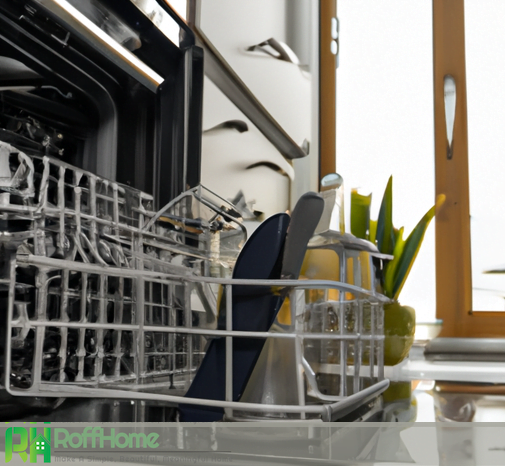
What is a dishwasher self-cleaning filter, and how does it work?
A dishwasher self-cleaning filter is a component found in modern dishwashers that helps to remove food particles and debris from the wash water, ensuring that dishes come out clean and free of residue.
The self-cleaning filter is designed to work automatically during the wash cycle. It is typically located at the bottom of the dishwasher, underneath the spray arm. The filter comprises a series of mesh screens that trap food particles and debris, preventing them from circulating into the wash water and redepositing on dishes.
Water enters the dishwasher during the wash cycle and is forced through the filter screens. Any food particles and debris too large to pass through the screens are trapped and held in the filter basket. The wash water is then directed through the spray arm and distributed evenly across the dishes for cleaning.
After the wash cycle, the dishwasher’s drain pump removes the dirty water from the dishwasher, including any trapped debris in the self-cleaning filter. During the next wash cycle, the filter automatically cleans itself, removing any remaining debris that may have been left behind.
Unlike traditional dishwasher filters, which require regular manual cleaning to maintain optimal performance, self-cleaning filters require very little maintenance. This is because they are designed to clean themselves automatically, ensuring the dishwasher works efficiently.
Tips for choosing the suitable dishwasher with a self-cleaning filter for home
Choosing a suitable dishwasher with a self-cleaning filter can be daunting, especially with so many options available on the market today. Here are some tips to help you choose the best dishwasher with a self-cleaning filter for your home:
Consider your budget: Dishwashers with self-cleaning filters come at different prices, from budget-friendly options to high-end models. Determine your budget before you start shopping to help narrow down your options.
Look for energy efficiency: Energy-efficient dishwashers with self-cleaning filters can help you save money on utility bills and reduce your carbon footprint. Look for models that are ENERGY STAR certified to ensure maximum efficiency.
Consider the size: Dishwashers with self-cleaning filters come in a range of sizes, so consider the space you have in your kitchen and the size of your household when choosing a model.
Evaluate the filtration system: Different dishwashers with self-cleaning filters may use different types of filtration systems, so research and evaluate the effectiveness of each option to ensure that it meets your needs.
Read customer reviews: Before purchasing, read customer reviews to get an idea of the reliability and performance of different models. Look for reviews from people who have had the dishwasher for an extended period to understand its long-term performance.
Look for convenience features: Some dishwashers with self-cleaning filters offer convenient features such as adjustable racks, delayed start times, and unique wash cycles for specific types of dishes. Consider which features are most important to you and look for models that offer them.
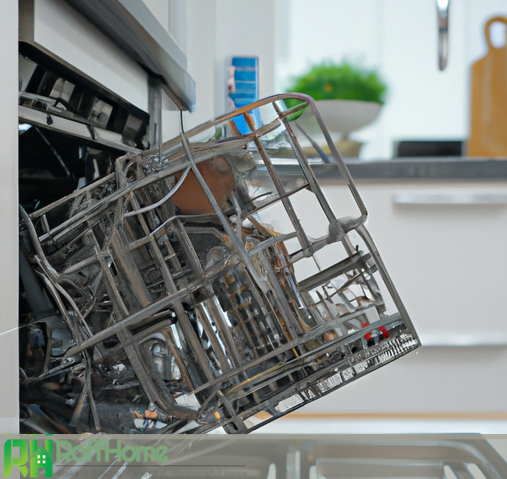
Maintenance Tips for Dishwasher Self-Cleaning Filters
Dishwasher self-cleaning filters are designed to require minimal maintenance, but you can still do some things to ensure that they work correctly and last as long as possible. Here are some maintenance tips for dishwasher self-cleaning filters:
Clean the exterior: Regularly wipe down the dishwasher’s exterior with a damp cloth to remove dirt or grime. This will help keep the dishwasher looking clean and prevent debris from getting into the filter.
Check the filter basket: Occasionally check the filter basket for any large debris that may be caught in the mesh screens. Remove the filter basket, rinse it under running water, and replace it.
Use the suitable detergent: The right detergent can help prevent buildup and clogs in the self-cleaning filter. Look for detergents that are specifically designed for use in dishwashers and that are labeled as being compatible with your dishwasher’s filtration system.
Run the dishwasher regularly: Running it can help prevent any buildup in the filter and ensure it stays clean and functioning correctly.
Check for clogs: If the dishwasher is not cleaning dishes as effectively as it used to, it may be a sign of a clogged filter. To check for clogs, remove the filter basket and inspect the mesh screens for buildup. If you find any clogs, rinse the filter basket under running water and replace it.
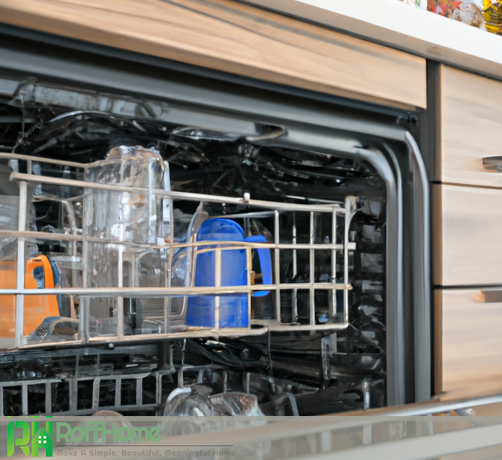
The Benefits of Using a Dishwasher with a Self-Cleaning Filter
Using a dishwasher with a self cleaning filter can offer numerous benefits for homeowners. Here are some of the key benefits of using a dishwasher with a self cleaning filter:
Improved cleaning performance: Self cleaning filters ensure the dishwasher consistently cleans dishes efficiently. They remove debris and food particles from the water used during the wash cycle, ensuring that dishes come out clean and free of residue.
Convenience: A dishwasher with a self cleaning filter saves you time and effort as you won’t need to clean the filter manually. Run the dishwasher on the self-cleaning cycle, and the filter will clean itself.
Energy and water efficiency: Dishwashers with self cleaning filters use less water and energy than hand-washing dishes, making them more environmentally friendly and cost-effective.
Longer lifespan: By using a dishwasher with a self cleaning filter, you can extend the lifespan of your dishwasher. Regular cleaning of the filter ensures that the dishwasher runs smoothly and prevents potential breakdowns.
Reduced maintenance: Self cleaning filters require minimal maintenance compared to traditional filters, which require manual cleaning and replacement. This can save you time and money in the long run.
Improved air quality: Self cleaning filters prevent food particles and debris from building up in the dishwasher, reducing the chances of odors and improving the overall air quality in your kitchen.
Dishwasher self cleaning filters have revolutionized how we clean our dishes, offering improved cleaning performance, convenience, and energy efficiency. Proper maintenance and cleaning can provide long-lasting benefits for homeowners, making them a worthwhile investment for any kitchen.



